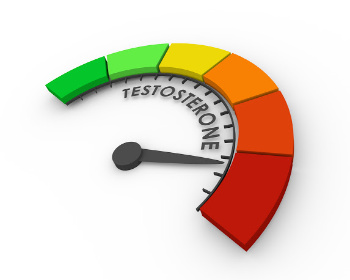In Older Men, Testosterone Therapy Doesn’t Increase Risk of Prostate Cancer

Men who undergo testosterone replacement therapy (TRT) to treat age-related low testosterone are not at higher risk for prostate cancer, according to research in the American Journal of Epidemiology.
Typically, TRT guidelines advise against the use of TRT in men who have either had prostate cancer in the past or are at risk for it in the future. The hormone testosterone can fuel the growth of prostate cancer cells.
It was unclear whether taking testosterone increased a man’s risk for prostate cancer, however.
TRT is often prescribed to men with low testosterone. (The medical term for this condition is hypogonadism.) The treatment is approved for men whose bodies cannot produce enough testosterone on their own, usually due to problems with the testes (the glands that make this hormone) or areas of the brain that trigger testosterone production.
However, men’s bodies gradually start producing less testosterone as they get older. Eventually, men might start feeling fatigued, moody, and less interested in sex. Some doctors prescribe TRT “off-label” to treat these symptoms. (Off-label treatments can help certain conditions, but aren’t approved by a regulatory agency for that purpose.)
In this study, researchers looked at data from 12,779 men in the United Kingdom whose testosterone levels were low due to age. The men were diagnosed with late-onset hypogonadism between January 1, 1995 and August 31, 2016. On average, they were about 60 years old at the start of the study.
Testosterone replacement therapy was started by 3,299 men within the first year of their hypogonadism diagnosis; the remaining 9,480 men did not take testosterone at any point.
The men were followed until August 31, 2017. The average follow-up period lasted for an average of 4.6 years, but 47% of the men were followed for at least five years.
Over that time, a total of 215 patients (53 men from the TRT group and 162 who did not have TRT) were diagnosed with prostate cancer.
Further analysis revealed that men who took testosterone were not at higher risk for prostate cancer compared to the men who didn’t undergo TRT.
“These findings should provide some reassurance on the long-term safety of TRT among men with late-onset hypogonadism,” the authors concluded.
Resources
American Journal of Epidemiology via Medscape
Santella, Christina, et al.
“Testosterone Replacement Therapy and the Risk of Prostate Cancer in men With Late-Onset Hypogonadism”
(Full-text. Published: May 30, 2019)
https://www.medscape.com/viewarticle/919553
Urology Care Foundation
“What is Prostate Cancer?”
(Updated: August 2018)
https://www.urologyhealth.org/urologic-conditions/prostate-cancer
You may also be interested in...
Other Popular Articles

What Is the Average Penis Size?
If you have ever wondered how your penis compares to others in terms of size, you are not alone. Many men are curious to know how their penises stack up compared to the average. Unfortunately, general curiosity can sometimes give way to full-on obsession and anxiety about penis size. This can be an unhealthy and often unnecessary fixation, especially because most men who think their penises are too small have perfectly normal-sized penises.

What Is Jelqing, and Does It Actually Work?
The term “jelqing” refers to a set of penis stretching exercises that some believe can make the penis bigger. Although the practice has gained attention and popularity in blogs and internet forums in recent years, there is no scientific evidence that it is an effective way to permanently increase the size of one’s penis. In fact, in some cases, jelqing may actually cause damage to the penis, so it is a good idea to get all the facts before setting off to try it.

What Is Sensate Focus and How Does It Work?
Sensate focus is a technique used to improve intimacy and communication between partners around sex, reduce sexual performance anxiety, and shift away from ingrained, goal-oriented sexual patterns that may not be serving a couple.

Can Sex Reduce Menstrual Cramps?
The SMSNA periodically receives and publishes ‘guest editorials.’ The current article was submitted by Mia Barnes, a freelance writer and researcher who specializes in women's health, wellness, and healthy living. She is the Founder and Editor-in-Chief of Body+Mind Magazine.
Having sex while you experience menstrual cramps is healthy and can provide significant benefits. While it might not be the first activity that comes to mind when your PMS or period cramping begins, many people enjoy sex to reduce menstrual cramps, experience increased pleasure and benefit from other advantages. Learn more about having sex while menstrual cramps are happening and how it can help your body.

How Long Does It Take the Average Man to Ejaculate?
On average, it takes a man between 5 to 7 minutes to orgasm and ejaculate during sexual intercourse.

Can Sex Throw off Your Vaginal pH Balance?
The SMSNA periodically receives and publishes ‘guest editorials.’ The current article was submitted by Mia Barnes, a freelance writer and researcher who specializes in women's health, wellness, and healthy living. She is the Founder and Editor-in-Chief of Body+Mind Magazine.
Your vagina is a pretty powerful organ. It is a pathway for menstrual blood and babies. It also is a main player in sexual intercourse. You might hear about your vagina’s pH and worry that yours is at risk. Here’s what to know about vaginal pH, including the impacts sex could have.
You are prohibited from using or uploading content you accessed through this website into external applications, bots, software, or websites, including those using artificial intelligence technologies and infrastructure, including deep learning, machine learning and large language models and generative AI.

